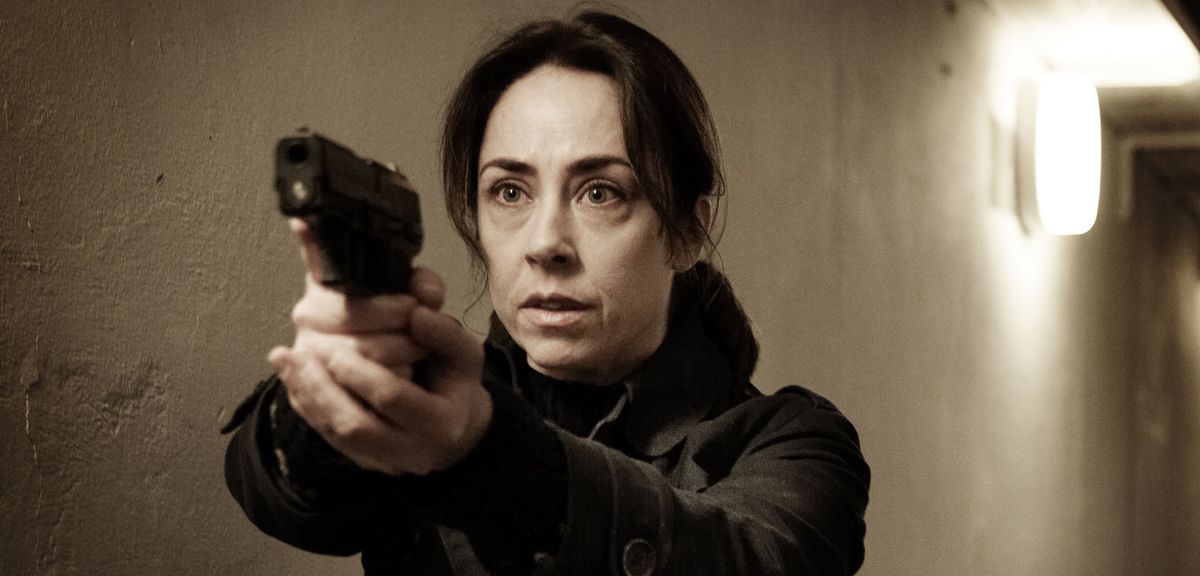 ★★★★
★★★★
“Happy ends are for losers!”
Spoilers will follow! At one point, Scandinavian noir, was a genre mostly well-known only in Europe and to die-hard crime novel readers. But the ground-breaking female characters who have made the genre recognized worldwide in the past two decades consists of a trio. In addition to the most well-known, Lisbeth Salander of the Millennium series, there is Saga Norén of Bron: The Bridge, and Sarah Lund of The Killing. All of these have been remade in a number of other countries – not only America. But I think it’s uncontroversial to say that none ever came close to the originals. There is something to the way these series are constructed and conceptualized by our Scandinavian neighbours, that film crews in other countries just can’t re-create.
It’s not just, for example that American productions have higher budgets. Other, non-American remakes or “new versions” aren’t able to re-create that special “air” either. It’s a specific atmosphere these series have, even though those in charge of production usually understand the attraction of the original. Although Scandinoir existed well before those three series. Elements like more realistic depictions of criminal acts, very often with social aspects interwoven, and investigators with personal problems, can be traced in literature back to the 1960s, and on television to the 1970s and 80s. A realistic local background with more down-to-earth investigators, as opposed to classic Anglo-American super-detectives like Sherlock Holmes, or private investigators like Philip Marlowe, started around then, and can still be found in long-running classic German TV crime series, Tatort (literal: “scene of the crime”).
Though before these new shows, some starring some quite “damaged” women, hardly anyone except die-hard fans of crime stuff noticed. The show that served as a wake-up call for everything was The Killing. This Danish-German co-production ran for three seasons, from 2007-2012. [It seems whenever there is a new Scandinavian crime series, ZDF, the second public TV channel of Germany, is involved. They also co-produced the Millennium and Bridge shows, among other Scandinavian series.] The original version totalled 40 episodes of 55 minutes; some countries broadcast it as 20 episodes of around 110 minutes. The German version was like that: you always can tell the break between episodes, by the two-minute montage, with music underneath. It received a number of remakes, in America, Turkey and Egypt.
As typical for these Scandinavian shows, they are slow-burn mysteries. This means taking their time, introducing countless suspects and going far beyond the case, such as adding a political dimension to the scope. I was astonished to discover they did really only cover one case for an entire season. In an average episode of Tatort the case would be solved and finished after the usual 90 minutes. Here, it takes longer – much longer! – especially in the first season. It started to drag a little bit, as solving the single case of a vanished girl lasted almost nineteen hours on screen. That said, the longer experience definitely has its advantages.
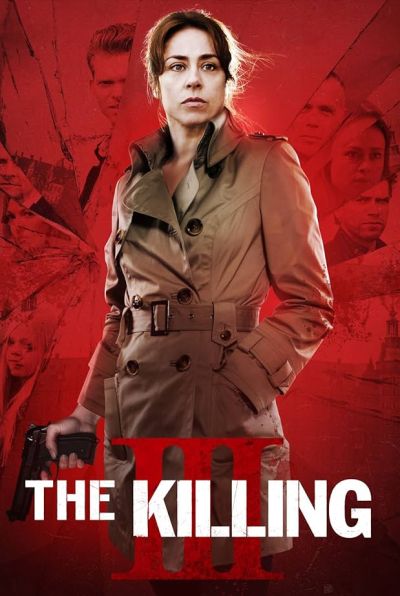 For perhaps the first occasion, the suffering of the family members left behind after a beloved person dies, is shown in what feels like almost real-time. That’s remarkable, as in almost any crime story I have ever seen, these feelings are usually only vocalized in one or two sentences. Just recently, I watched an old Italian giallo and it felt almost ridiculous how the main character seemed hardly moved at all, as her entire family was exterminated, one by one. Is such behavior normal? Normal people mourn their beloved ones. Maybe some do it more quietly than others, but most movies or series leave this, very important, aspect out, with it usually secondary to finding the perpetrator. The Killing takes that time, showing us the after-effects on a family barely able to go on, needing psychological help, and taking pointless, misguided revenge, with acts that can’t bring back what has been lost.
For perhaps the first occasion, the suffering of the family members left behind after a beloved person dies, is shown in what feels like almost real-time. That’s remarkable, as in almost any crime story I have ever seen, these feelings are usually only vocalized in one or two sentences. Just recently, I watched an old Italian giallo and it felt almost ridiculous how the main character seemed hardly moved at all, as her entire family was exterminated, one by one. Is such behavior normal? Normal people mourn their beloved ones. Maybe some do it more quietly than others, but most movies or series leave this, very important, aspect out, with it usually secondary to finding the perpetrator. The Killing takes that time, showing us the after-effects on a family barely able to go on, needing psychological help, and taking pointless, misguided revenge, with acts that can’t bring back what has been lost.
Admittedly, they might have gone on in this direction a bit too much – especially in the first season, which is twice as long as the others – and I was starting to look at my watch. Though things are always happening, you may lose a bit of patience as yet another suspect is presented to you. What, they are proven innocent? Okay, how about this one? Oh, and there is new evidence, it might actually have been the one we let off the hook last episode! And so on.
In all three seasons, a pattern of political involvement is found. For example, a pool car belonging to a political party might have been involved in a kidnapping, with the story taking place in the run-up to elections. Suddenly, the whole process of parties in electoral battle mode can be affected by the outcome of the investigations, as well as individuals’ dirty laundry being brought up by the other side or the police. One of the main politicians in the first season is played by Lars Mikkelsen (Mads’ brother), who’d go on to play a great villain in the Benedict Cumberbatch “Sherlock” show. In other seasons, the police have to deal with other institutions and organizations hampering their work, such as the military or the secret service. The third season deals with a major industrial corporation, as the company chief’s daughter is kidnapped and might be held in one of his shipping containers.
But the main character is always the introverted police commissioner, Sarah Lund (Gråbøl). Lund doesn’t come across as the most accessible character, to say the least. It’s a character trait she shares with her sisters in spirit, Salander and Norén. Though of the three, she might be the most “normal”, and her biggest problem an inability to communicate. Maybe it’s too cold in Denmark, and you don’t want to open your mouth if it’s not necessary? She can be quite talkative – when it’s about the case. But it’s always about the case and not her family. In season one, Lund’s fiancé and son wait for her to come to them in Sweden. Though she wants it, there is always something. Her superior insists she has to continue her work, as the only one who can, despite her successor already waiting in the wings. Even after boarding the plane, she returns once again to solve crime for another day in Copenhagen. Then everything changes when her colleague gets shot.
She gets smarter in the second season, now carrying her gun with her at all times. This will save her life at the end of the series, which deals with a series of murders of former Danish soldiers. Sometimes you can’t solve everything just with your mind! But there is always an apparent lack of social competence. Lund doesn’t seem to understand the emotional needs of her family (and others) and that’s why she loses them. The case is always more important for her. She becomes quite obsessive in her investigations – even after everyone, including her new chief Brix (Morten Suurballe) sees a case as solved. You thought Columbo with his, “There is still a little question I have…”, could get on your nerves? Wait, until you meet Sarah Lund!
There is a learning curve and character arc for the character. She is hesitant to come back to work in season 2, and in season 3 realizes that she has failed, not only as a mother but in her social life in general. She would like to have a closer relationship with her son, but he doesn’t want anything to do with her anymore. She manages to take care of his pregnant girl-friend, though even in front of the hospital room where the girl and her son are holding her newborn grandchild, she still turns around because… Well, you know… The case… Ultimately, the show can be seen as a tragedy. Yes, the cases all get solved in the end. But that doesn’t mean that we get a truly happy ending.
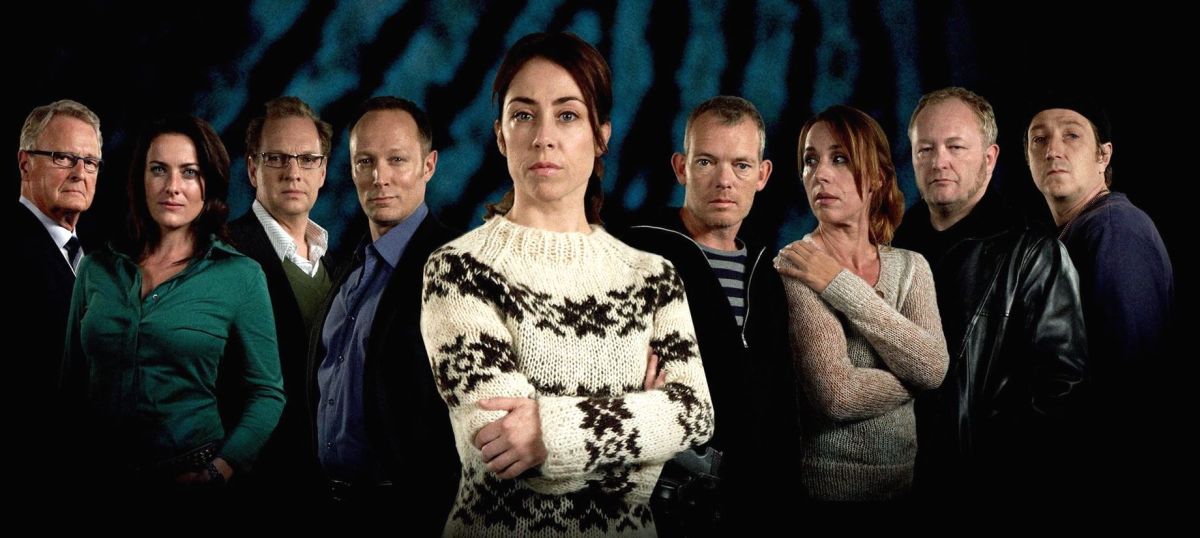 Season 1. The father of the murdered girl kills the murderer, and will most likely go into prison for that. Season 2. The minister of justice uncovers the corruption of the ruling government, but can’t do anything against it, as everyone is covering it up. He can only decide between joining them, thereby keeping his career, or quitting. Season 3 is the worst of all. While the kidnapped girl is saved, the industrialist must remain silent about the cover-up of his board of directors, in order to keep the company going. Meanwhile, Lund finds out who raped and murdered another girl years ago, and sees no alternative but to shoot the murderer. The ending has her leaving her home country, perhaps to return one day with new evidence to justify the killing, instead of finally getting together with a past love from her youth (Kass, who would later enjoy success as Jussi Adler-Olsen’s Carl Mørck).
Season 1. The father of the murdered girl kills the murderer, and will most likely go into prison for that. Season 2. The minister of justice uncovers the corruption of the ruling government, but can’t do anything against it, as everyone is covering it up. He can only decide between joining them, thereby keeping his career, or quitting. Season 3 is the worst of all. While the kidnapped girl is saved, the industrialist must remain silent about the cover-up of his board of directors, in order to keep the company going. Meanwhile, Lund finds out who raped and murdered another girl years ago, and sees no alternative but to shoot the murderer. The ending has her leaving her home country, perhaps to return one day with new evidence to justify the killing, instead of finally getting together with a past love from her youth (Kass, who would later enjoy success as Jussi Adler-Olsen’s Carl Mørck).
As there never was a fourth season, she might still be searching that evidence abroad. But happy endings certainly look different in Scandinavia. After all is said though, this is a good show with great and convincing actors. You can enjoy its complex story-lines, its gritty, sometimes almost cynical, world view and darkness, if you are willing to be patient and have enough time. The second and third seasons are much easier to watch than the first. The Scandinavian approach to crime series is definitely different one from what other European or American series offer their audiences. But if you get used to them, they can be quite addictive as this show showed. On its release, The Killing became especially successful in Great Britain, which might then have drawn the attention of American producers in this direction.
It started the new wave of Scandinavian noir in 2007, which seems to have lasted for about a decade, ending ten years later in the Hollywood adaptation of Jo Nesbø’s The Snowman, with Michael Fassbender as Harry Hole. But if you are in the mood for more psychologically damaged, Scandinavian, anti-heroines, you’ll find plenty of others, such as Annika Bengtzon or Rebecka Martinsson. There are also reports that Amazon Prime is planning a new show on good ol’ Lisbeth Salander. Who knows, maybe the era of troubled Scandinavian female investigators isn’t over yet?
Creator: Søren Sveistrup
Star: Sofie Gråbøl, Søren Malling, Mikael Birkkjær, Nikolaj Lie Kaas





 Sheesh, they’ll adapt anything into a movie these days. Hey, I guess if Clue, Battleship and Ouija can become films, why not Cand… Yeah, to be clear I am joking. Do not, for the love of God, mistake this as about the quest for King Kandy. Though I am amused the Wikipedia page for the game specifically says, not to be confused with this film. For it’s actually about truck-stop hookers being stalked by a murderous psychopath. Which could, I admit, probably be adapted into a pretty decent board-game. The central character is Remy (Luccardi), an escapee from a religious cult, who finds herself stranded at the truck-stop, and befriended by Sadie (Quartin) and the other “lot lizards” there.
Sheesh, they’ll adapt anything into a movie these days. Hey, I guess if Clue, Battleship and Ouija can become films, why not Cand… Yeah, to be clear I am joking. Do not, for the love of God, mistake this as about the quest for King Kandy. Though I am amused the Wikipedia page for the game specifically says, not to be confused with this film. For it’s actually about truck-stop hookers being stalked by a murderous psychopath. Which could, I admit, probably be adapted into a pretty decent board-game. The central character is Remy (Luccardi), an escapee from a religious cult, who finds herself stranded at the truck-stop, and befriended by Sadie (Quartin) and the other “lot lizards” there. Remy eventually becomes part of the “team,” also including gay-for-pay Levi (Campbell), who service the truckers who pass through the high-altitude location – as well as local sheriff Rex (Baldwin). It’s a tough life, with violence a risk they face on an everyday basis, such as when a trucker shows up in a toilet stall with his throat slit, or someone decides Levi is a bit of rough. However, things escalate considerably, because the problem is: you can take the girl out of the cult, but you can’t take the cult out of the girl. After getting a visit from another member, Remy decides, as she puts it, “We must cleanse the world before we can cleanse ourselves of it.”
Remy eventually becomes part of the “team,” also including gay-for-pay Levi (Campbell), who service the truckers who pass through the high-altitude location – as well as local sheriff Rex (Baldwin). It’s a tough life, with violence a risk they face on an everyday basis, such as when a trucker shows up in a toilet stall with his throat slit, or someone decides Levi is a bit of rough. However, things escalate considerably, because the problem is: you can take the girl out of the cult, but you can’t take the cult out of the girl. After getting a visit from another member, Remy decides, as she puts it, “We must cleanse the world before we can cleanse ourselves of it.”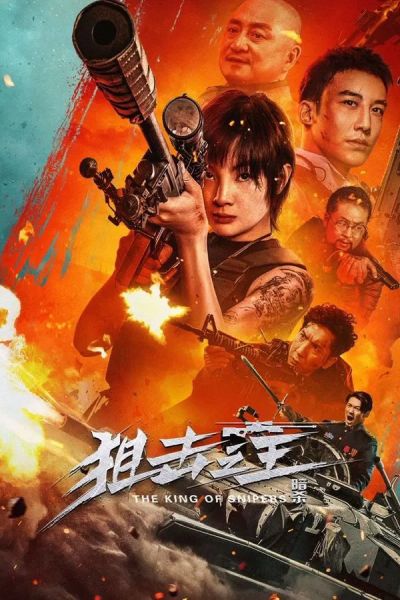 It’s not long before someone tries to kill her in the psychiatric facility, but she’s able to escape (somewhat), with the help of struck-off former doctor, Nasipan (Tao). However, she is forced, with the aid of a nano-bomb injected into her bloodstream, to take a mission for Artest (Mak). There’s a war of succession going on in the country of “Libiwala”, with the prospect of drug production becoming legal in the country – to the joy of crime boss Roger (Lee). Artest requires Anna to liquidate all those in line for the leadership to prevent this. Or maybe encourage this. It’s all a bit murky, and the plot twists and turns until the very last scene, though never gets incoherent.
It’s not long before someone tries to kill her in the psychiatric facility, but she’s able to escape (somewhat), with the help of struck-off former doctor, Nasipan (Tao). However, she is forced, with the aid of a nano-bomb injected into her bloodstream, to take a mission for Artest (Mak). There’s a war of succession going on in the country of “Libiwala”, with the prospect of drug production becoming legal in the country – to the joy of crime boss Roger (Lee). Artest requires Anna to liquidate all those in line for the leadership to prevent this. Or maybe encourage this. It’s all a bit murky, and the plot twists and turns until the very last scene, though never gets incoherent.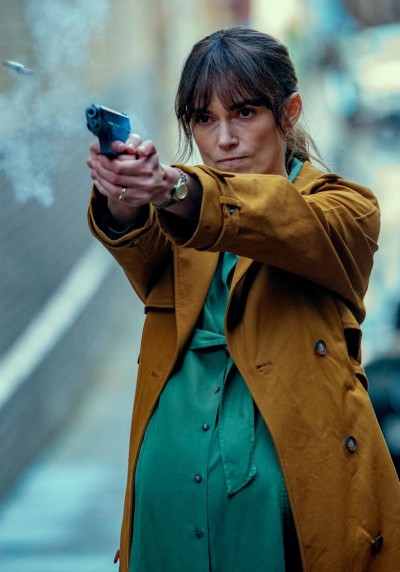 Reed calls in her top assassin, Sam (Whishaw), to protect Helen, fearing she might also be targeted. He has a history with Helen, dating back to before the birth of her children with Wallace. Things spiral out of control, involving the suspicious death of the Chinese ambassador, his missing daughter, a previous hit Sam botched, and Helen’s relentless pursuit of revenge, while trying to keep her family life intact. It’s a lot of balls to keep in the air, but the script does a fine job of avoiding confusion, with the wrap-up proving particularly admirable in its clarity. While I’ve read complaints about it being implausible, I have definitely seen worse. There’s room for both this, and more grounded spy shows like Slow Horses.
Reed calls in her top assassin, Sam (Whishaw), to protect Helen, fearing she might also be targeted. He has a history with Helen, dating back to before the birth of her children with Wallace. Things spiral out of control, involving the suspicious death of the Chinese ambassador, his missing daughter, a previous hit Sam botched, and Helen’s relentless pursuit of revenge, while trying to keep her family life intact. It’s a lot of balls to keep in the air, but the script does a fine job of avoiding confusion, with the wrap-up proving particularly admirable in its clarity. While I’ve read complaints about it being implausible, I have definitely seen worse. There’s room for both this, and more grounded spy shows like Slow Horses. She was badly injured in the crash, and ends up taking shelter in the small town of San Lucas, at the home of police officer Julio (Carvajal) and his family. He’s gathering evidence against his corrupt boss, Chief Santiago (Compte), who’s working with the cartel. When Julio is exposed, Santiago decides an example must be made of the informant, wiping out not just his employee, but his entire family. The only thing standing between them and annihilation is Dominique. After she successfully repels the initial assault, she has to fortify the family home, and prepare to fend off everything Santiago can throw at her. Which is a lot of cannon fodder. Most of it tactically inept, I must say.
She was badly injured in the crash, and ends up taking shelter in the small town of San Lucas, at the home of police officer Julio (Carvajal) and his family. He’s gathering evidence against his corrupt boss, Chief Santiago (Compte), who’s working with the cartel. When Julio is exposed, Santiago decides an example must be made of the informant, wiping out not just his employee, but his entire family. The only thing standing between them and annihilation is Dominique. After she successfully repels the initial assault, she has to fortify the family home, and prepare to fend off everything Santiago can throw at her. Which is a lot of cannon fodder. Most of it tactically inept, I must say.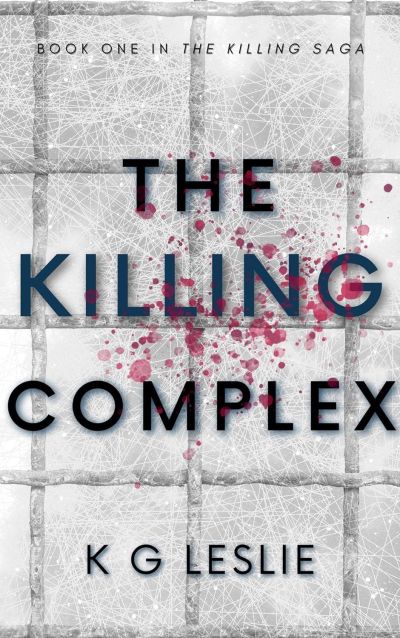 In the early going, much of this unfolds inside Cassie’s head, as she goes through what perhaps seems inspired by the five stages of grief, from rejecting the reality of her predicament, through anger, and ending up in a personal commitment to do whatever is necessary in order to survive – even if this comes at the cost of her own humanity. But just when she’s on the edge of becoming a soulless killing machine, she’s relocated, and placed next to another prisoner, Thomas. He was also abducted, but more recently, so hasn’t been ground down by his situation yet, and his optimism reignites Cassie’s own interest in life. But is everything quite what it seems, or are there other agendas at work?
In the early going, much of this unfolds inside Cassie’s head, as she goes through what perhaps seems inspired by the five stages of grief, from rejecting the reality of her predicament, through anger, and ending up in a personal commitment to do whatever is necessary in order to survive – even if this comes at the cost of her own humanity. But just when she’s on the edge of becoming a soulless killing machine, she’s relocated, and placed next to another prisoner, Thomas. He was also abducted, but more recently, so hasn’t been ground down by his situation yet, and his optimism reignites Cassie’s own interest in life. But is everything quite what it seems, or are there other agendas at work?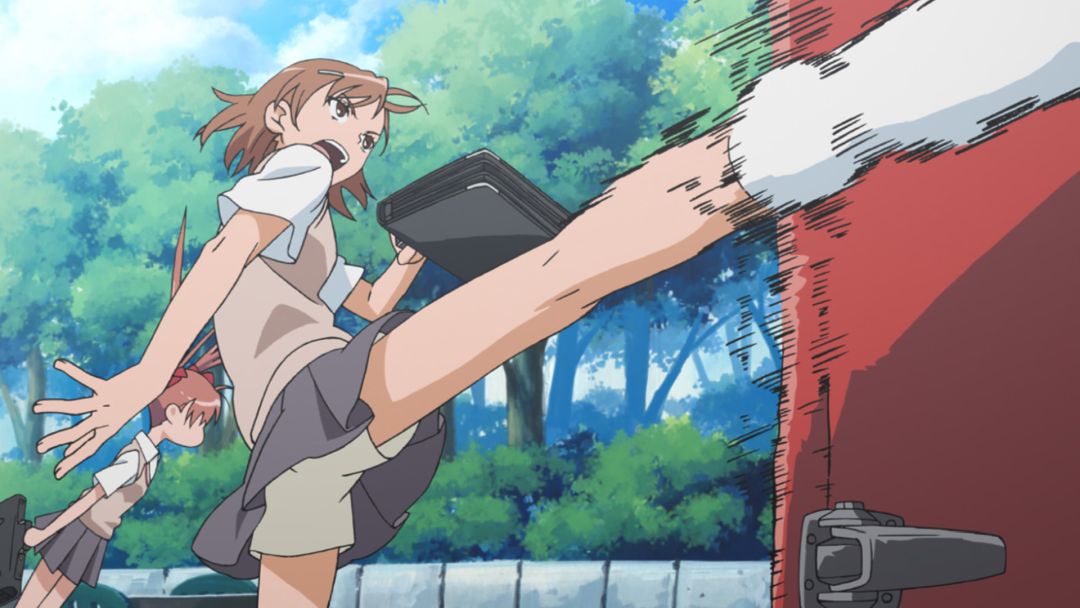 ★★★★
★★★★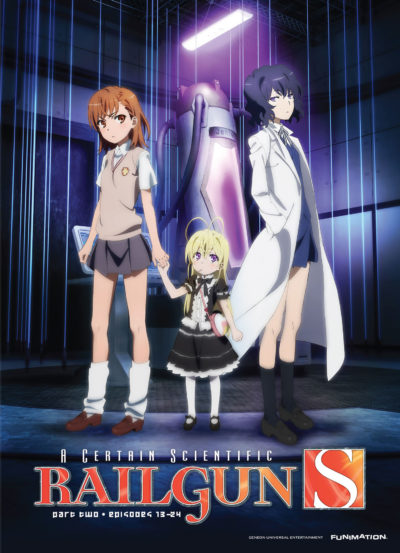 Another strange thing occurs. Somebody is leaving envelopes containing money in small, dark side-streets, leading to people going on their own treasure hunt, and Mikoto & Co. try to find out who’s doing that and why. The story constantly builds and you slowly realize that you are paying much more attention to the show then you ever did before. When Mikoto finally meets her doppleganger, it’s initially almost a shock. It leads to questions: who is the girl, why is she behaving so strangely, and where does she come from? Mikoto indeed has “sisters”. Actually, a lot of them. And these girls are part of an unethical and inhuman experiment.
Another strange thing occurs. Somebody is leaving envelopes containing money in small, dark side-streets, leading to people going on their own treasure hunt, and Mikoto & Co. try to find out who’s doing that and why. The story constantly builds and you slowly realize that you are paying much more attention to the show then you ever did before. When Mikoto finally meets her doppleganger, it’s initially almost a shock. It leads to questions: who is the girl, why is she behaving so strangely, and where does she come from? Mikoto indeed has “sisters”. Actually, a lot of them. And these girls are part of an unethical and inhuman experiment. After this very well-built, suspenseful story arc, running from episode 2 until episode 16, I can understand why some felt the remainder of this season was a bit of a letdown. While we get another arc, the new one can’t quite compete with what happened before, though is decent on its own merits. For a while, we go back to small stories of the girls getting together and the usual jokes like e. Saten pulling up Uiharu’s skirt to embarrass her. Yes, that’s a thing. It’s alright by me. After you have clashed with the Big Bad, it’s
After this very well-built, suspenseful story arc, running from episode 2 until episode 16, I can understand why some felt the remainder of this season was a bit of a letdown. While we get another arc, the new one can’t quite compete with what happened before, though is decent on its own merits. For a while, we go back to small stories of the girls getting together and the usual jokes like e. Saten pulling up Uiharu’s skirt to embarrass her. Yes, that’s a thing. It’s alright by me. After you have clashed with the Big Bad, it’s 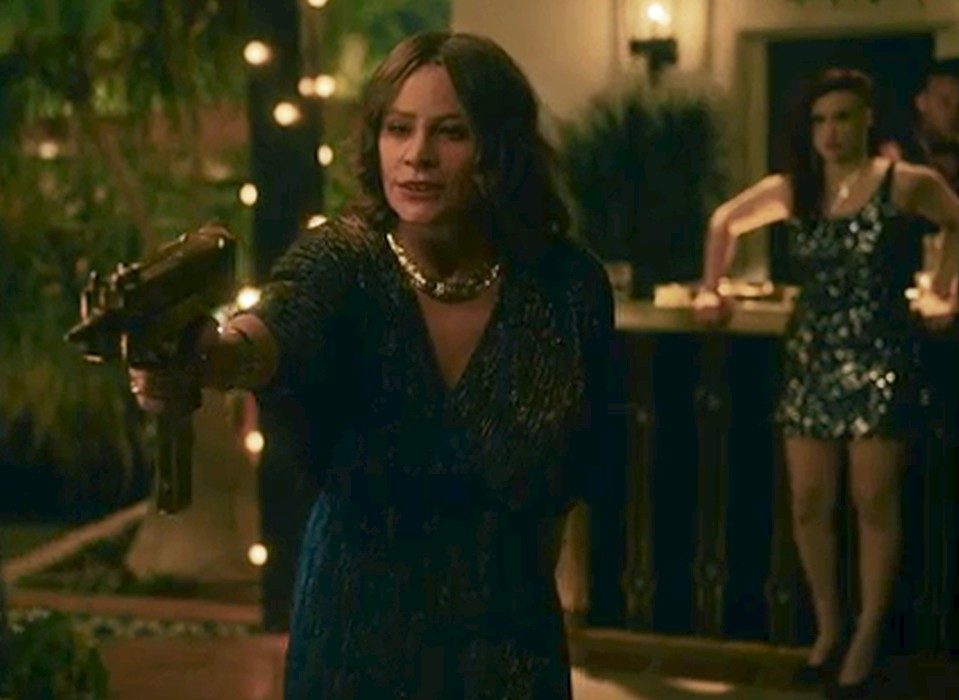 ★★★★
★★★★ It’s kinda inspiring, weirdly. Early on, the series can be seen a twisted version of the American dream, where an immigrant can come to America, pull themselves up by their bootstraps, and anyone can achieve success if they work hard. The reality is, Blanco didn’t arrive in Miami seeking asylum from domestic abuse, but fleeing increased law-enforcement heat for drug trafficking in New York. Not exactly what Vergara
It’s kinda inspiring, weirdly. Early on, the series can be seen a twisted version of the American dream, where an immigrant can come to America, pull themselves up by their bootstraps, and anyone can achieve success if they work hard. The reality is, Blanco didn’t arrive in Miami seeking asylum from domestic abuse, but fleeing increased law-enforcement heat for drug trafficking in New York. Not exactly what Vergara  In terms of production value, this is definitely several slices above the other efforts, even if Los Angeles stood in entirely for Miami (the latter no longer resembling what it was at the time). Of particular note is the make-up work on Vergara. It must have been a challenge, because events unfold over a significant number of years: your lead is, obviously, more or less fixed at a point in time. Initially, there’s little of note, but it gradually builds up, in a way that’s so subtle you might not notice. Until, by the end, you suddenly realize the character no longer looks like the actress. Though still rather prettier than the real Griselda.
In terms of production value, this is definitely several slices above the other efforts, even if Los Angeles stood in entirely for Miami (the latter no longer resembling what it was at the time). Of particular note is the make-up work on Vergara. It must have been a challenge, because events unfold over a significant number of years: your lead is, obviously, more or less fixed at a point in time. Initially, there’s little of note, but it gradually builds up, in a way that’s so subtle you might not notice. Until, by the end, you suddenly realize the character no longer looks like the actress. Though still rather prettier than the real Griselda.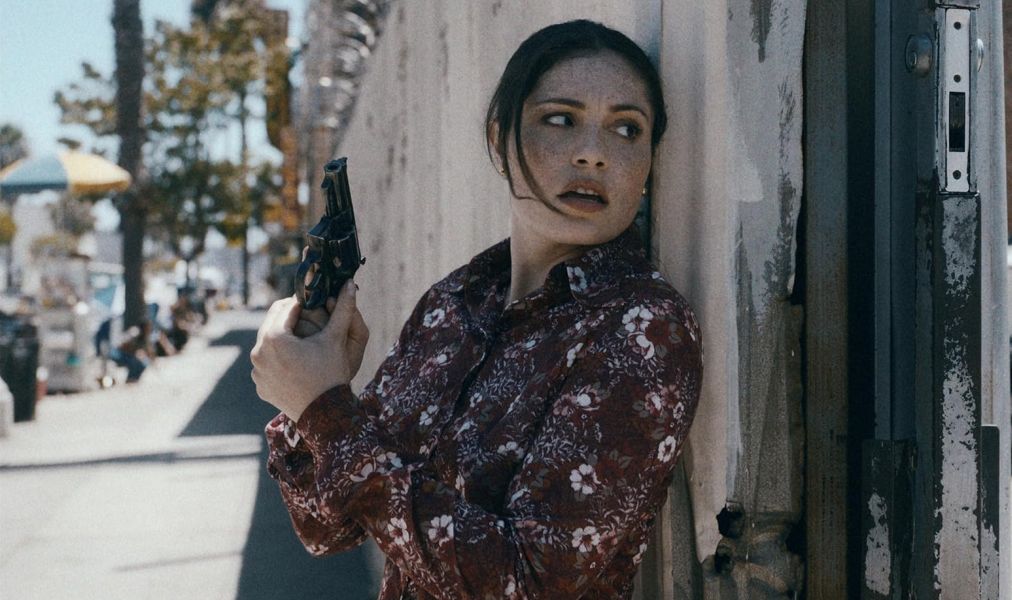
 ★★★★
★★★★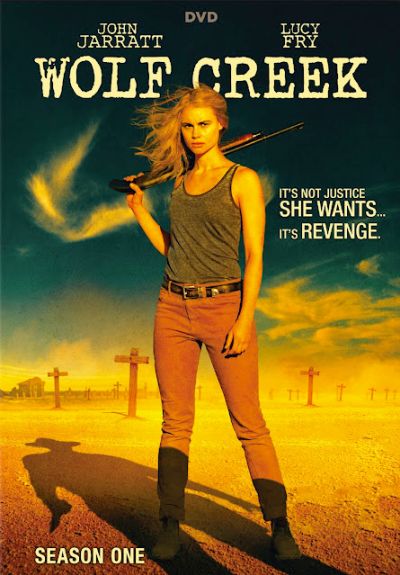 I have to say that this series really surprised me. I had bought it based solely due to the cool cover photo and didn’t expect much more than a probably over-gruesome third-rate slasher, I mean, is Australia really famous for great serial killer psycho thrillers? Though there is the very good Stacy Keach and Jamie Lee Curtis thriller from 1981, Road Games. As a matter of fact, this short (six episodes) series blew me away with its astounding quality. When you read the above, you might be forgiven for getting the impression the whole thing will come across as a bit cheap in its storytelling, or the motivation of its characters – a bit schlocky in general.
I have to say that this series really surprised me. I had bought it based solely due to the cool cover photo and didn’t expect much more than a probably over-gruesome third-rate slasher, I mean, is Australia really famous for great serial killer psycho thrillers? Though there is the very good Stacy Keach and Jamie Lee Curtis thriller from 1981, Road Games. As a matter of fact, this short (six episodes) series blew me away with its astounding quality. When you read the above, you might be forgiven for getting the impression the whole thing will come across as a bit cheap in its storytelling, or the motivation of its characters – a bit schlocky in general.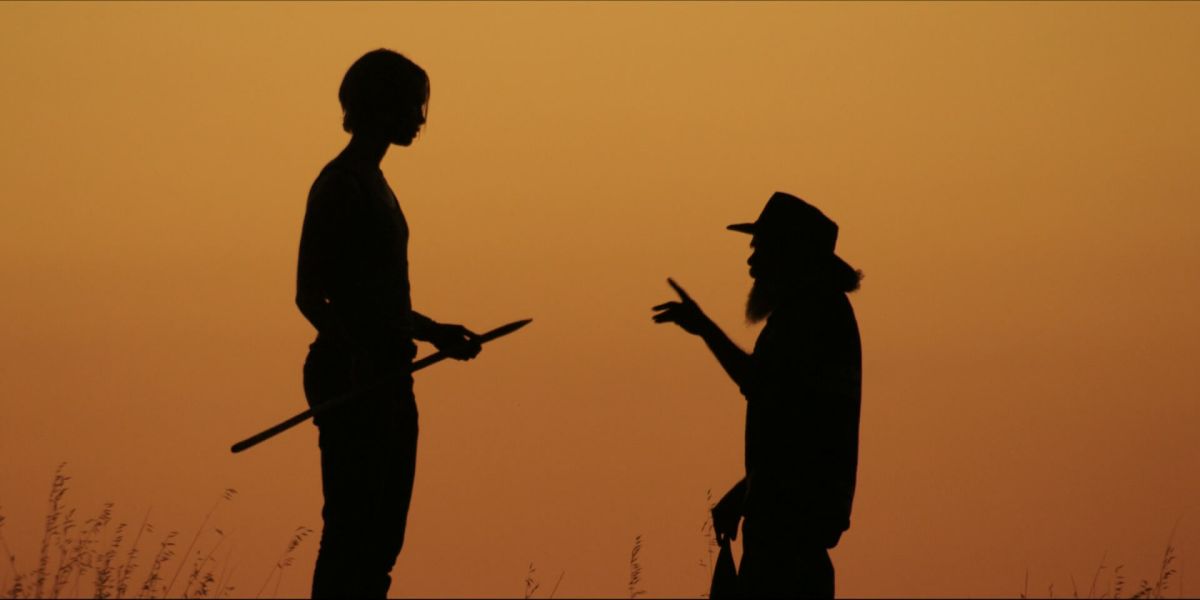 Eve is repeatedly confronted by these criminals, or wanna-be-rapists who see a normal dressed woman as an offer, and experiences family tragedies that actually form the core of the narrative. She is not without help though. As well as the policeman on her trail who reluctantly starts to cover-up for her, there is a criminal whom she meets in the desert, an old Aborigine who fits into the classic mentor role, a colleague in a bar and she even gets a canine companion. Though the question always lingers while watching the show: Will she get her revenge? What will she do when meeting the man who killed her family? Does she even have a chance against an experienced, sadistic killer like Mick?
Eve is repeatedly confronted by these criminals, or wanna-be-rapists who see a normal dressed woman as an offer, and experiences family tragedies that actually form the core of the narrative. She is not without help though. As well as the policeman on her trail who reluctantly starts to cover-up for her, there is a criminal whom she meets in the desert, an old Aborigine who fits into the classic mentor role, a colleague in a bar and she even gets a canine companion. Though the question always lingers while watching the show: Will she get her revenge? What will she do when meeting the man who killed her family? Does she even have a chance against an experienced, sadistic killer like Mick?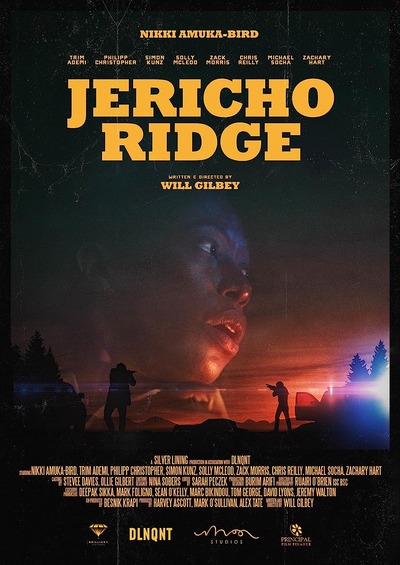 The heroine is
The heroine is